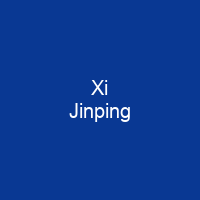Xi Jinping: A Man of Many Hats
Xi Jinping, the current leader of China, wears many hats. He is not just a politician but also an economist, philosopher, and even a soccer enthusiast. Born on June 15, 1953, in Beijing, Xi’s journey to power has been marked by both personal struggles and political triumphs.
Early Life and Struggles
Imagine growing up under the shadow of your father’s persecution. That was Xi Jinping’s reality. His father, a communist veteran, faced purges during the Cultural Revolution, leaving young Xi to fend for himself in the countryside.
The Road to Power
After years of hard work and political maneuvering, Xi rose through the ranks of the Chinese Communist Party (CCP). His ascent was not without controversy; his father’s past cast a long shadow over his early career. But by 2012, he had secured the top positions as general secretary of the CCP and chairman of the Central Military Commission.
Political Ideals and Policies
Xi Jinping’s political ideas are encapsulated in what is known as ‘Xi Jinping Thought.’ This ideology has been integrated into China’s constitution, making it a guiding principle for governance. His policies focus on common prosperity, anti-corruption measures, and aggressive foreign policy.
Economic Reforms
Under Xi’s leadership, China has seen significant economic growth. The country has lifted millions out of poverty, and its economy has doubled in size since 2012. However, the focus on ‘high-quality growth’ and the push for technological innovation have also led to increased state control over key sectors.
Foreign Policy
Xi Jinping’s foreign policy aims to restore China’s position as a global power. His approach is often described as “wolf warrior diplomacy,” characterized by assertiveness and a willingness to project strength on the world stage.
Cult of Personality and Control
As Xi consolidates his power, he has established a cult of personality through propaganda and public appearances. His image is everywhere in China, from murals to official media. The National Security Commission, under his leadership, has expanded the reach of state control over all aspects of life.
Human Rights Concerns
The human rights situation in China has worsened under Xi’s rule. Mass surveillance, restrictions on free speech, and crackdowns on dissent have become more severe. The government’s response to the 2019 Hong Kong protests was particularly harsh, with a national security law imposed to quell opposition.
Conclusion
In summary, Xi Jinping’s leadership has been marked by both progress and controversy. While his policies have brought economic growth and technological advancement, they have also led to increased state control and human rights concerns. As China continues its rise on the global stage, the world watches with interest to see how Xi’s vision for the future will unfold.

You want to know more about Xi Jinping?
This page is based on the article Xi Jinping published in Wikipedia (retrieved on December 31, 2024) and was automatically summarized using artificial intelligence.




